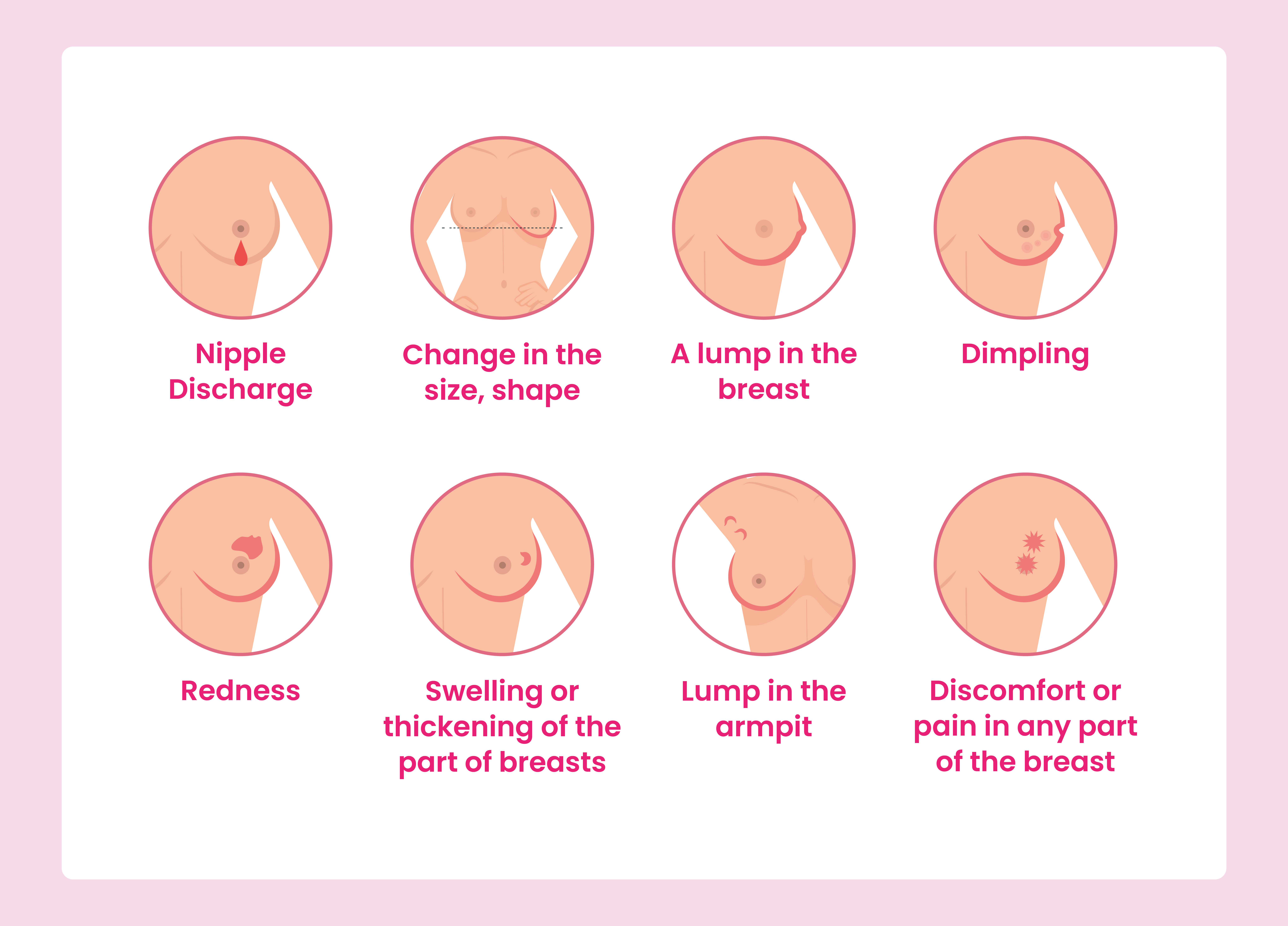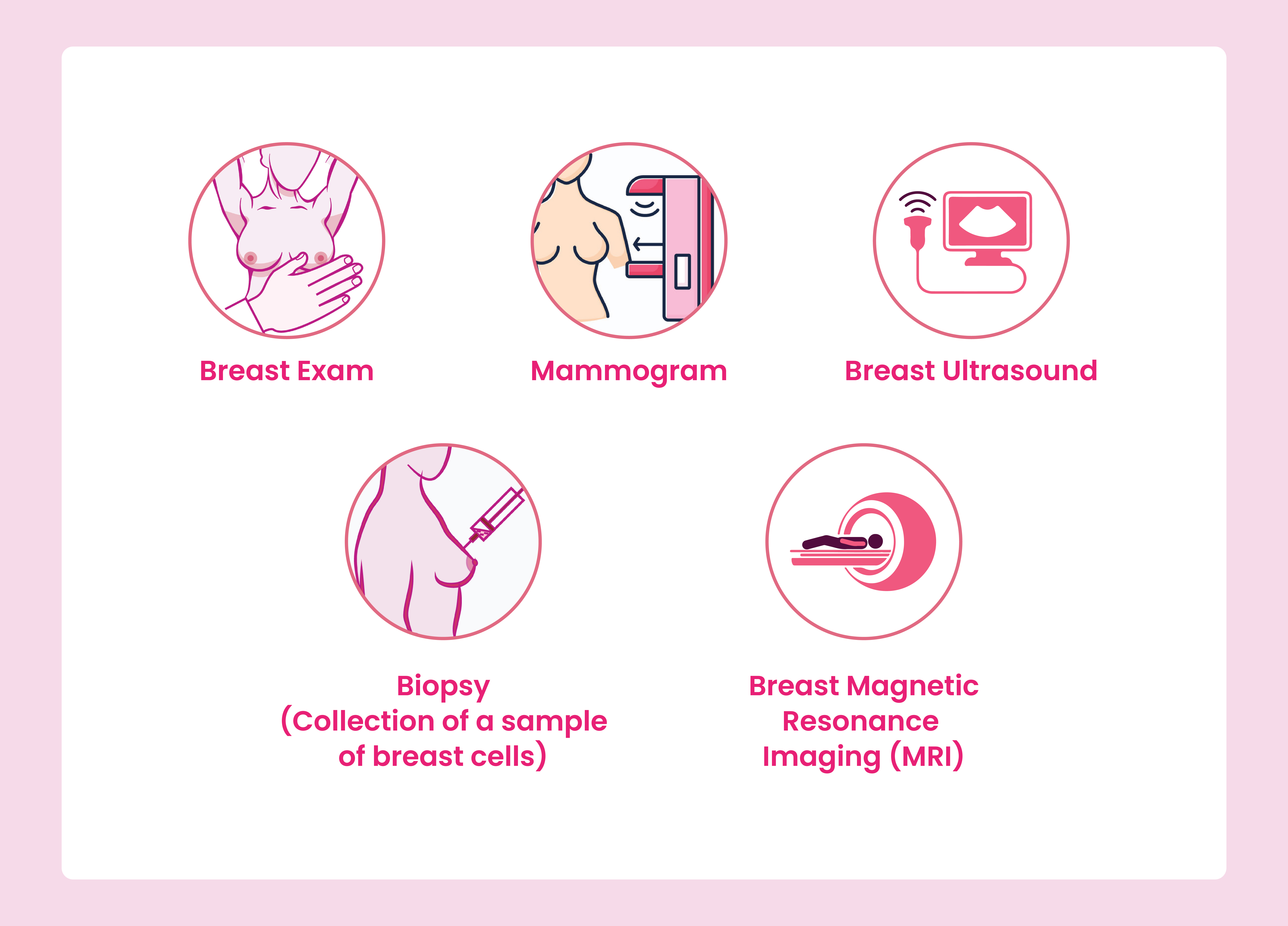

Get your questions answered about everything pertaining to breast cancer by getting in touch with Dr. Manasi Shah, a breast cancer specialist in Ahmedabad, and also if you encounter any of the symptoms listed above.
Determining the cancer's stage following a diagnosis of breast cancer is crucial for selecting the most effective treatment plan. The kind of breast cancer treatment you can choose from depends on your personal preferences, the type of cancer you have, its stage, grade, and size. It also depends on your general health and whether the cancer cells are hormone-sensitive. Among the numerous choices are:
